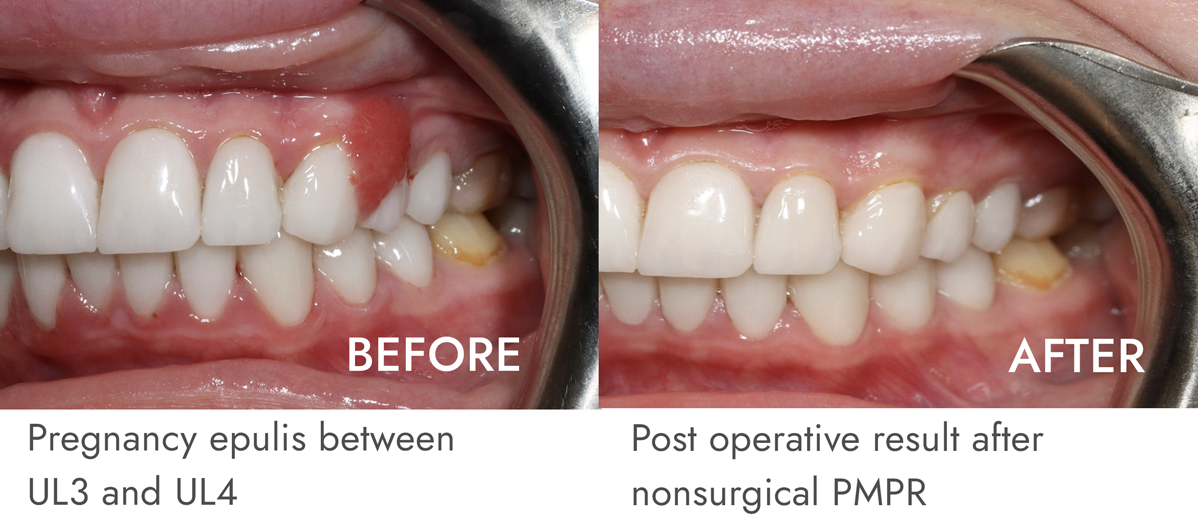Periodontal Conditions in Pregnant Patients
Aug 27, 2024
Author: Gum Specialist Dr Chandni
The health of the pregnant patient and their foetus is linked and therefore maintaining good oral health is important. Usually, the gingival inflammation will resolve after delivery. However, it is important to ensure that all patients have a good oral hygiene regime where plaque is being removed effectively. This involves educating the patients at home to maintain excellent plaque control as well as regular visits to the dentist/hygienist.
During pregnancy, hormone levels change and there is an increased vascular permeability in the gingival tissues. This can cause inflammation of the gums leading to gingivitis, periodontitis (or worsening of any current periodontitis) and localised swellings of the gums (such as a pregnancy epulis). Some studies have suggested that the bacteria from the mouth can colonise the placenta and foetus through the blood. This can lead to some women with periodontitis having adverse pregnancy outcomes (low birth weight, preterm birth and pre-eclampsia) as well as gestational diabetes melitus.
Those with periodontitis, should have subgingival professional mechanical plaque removal (PMPR) to try and stabilise the gum disease as soon as possible, to prevent the disease worsening during pregnancy. If you are unable to stabilise this in general practice, you can refer the patient to a periodontist. During pregnancy, undertaking PMPR is safe, especially in the second trimester. However, certain antibiotics should be avoided, such as metronidazole and tetracyclines.
Managing a pregnancy epulis is undertaken in stages. Firstly, always ensure excellent plaque control is undertaken by the patient. Undertaking non-surgical subgingival PMPR may help reduce the swelling and inflammation by removing the plaque. Reassurance is key – patients will often worry about the swelling and so easing their anxiety is important. It would not be advised to remove the swelling surgically during the pregnancy as the epulis may recur and it often resolves after the baby has been born. However, in some cases, the swelling may still remain after delivery. If the epulis remains, non-surgical PMPR and even surgery can then be undertaken to excise it. This is often recommended to be undertaken with a specialist periodontist.
Below is an example of successful management of a pregnancy epulis, after delivery, at RW Perio:


